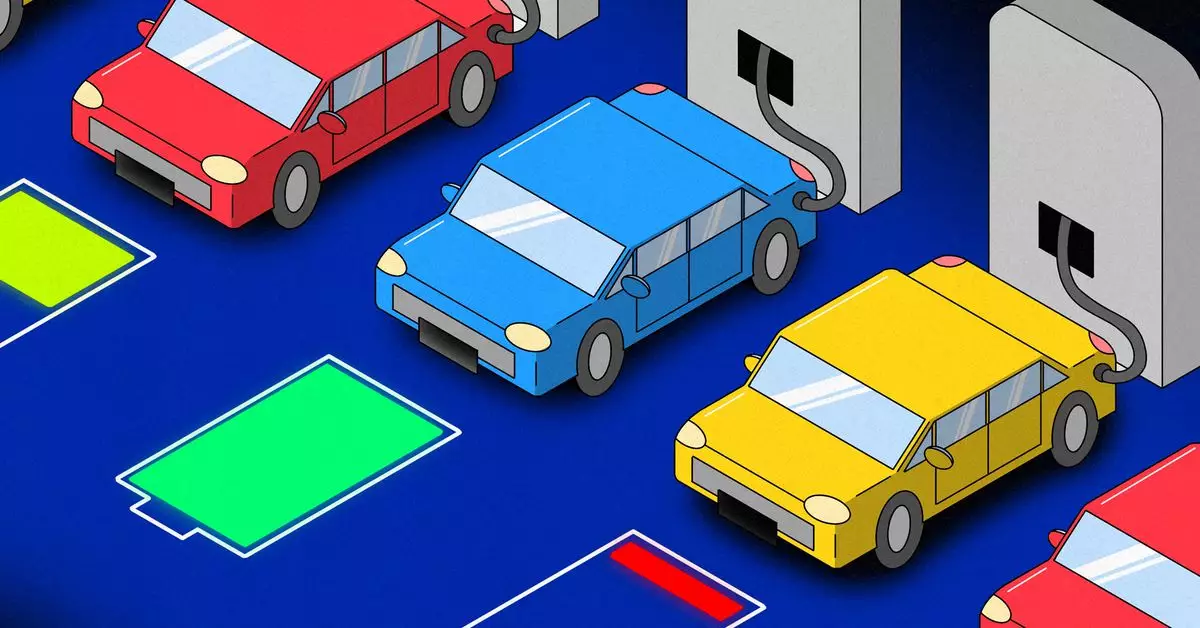Electric vehicles (EVs) have been touted as the future of transportation, promising reduced maintenance and environmental benefits. However, a recent JD Power quality study has revealed some concerning findings regarding the reliability of EVs compared to traditional gas-powered vehicles. Let’s take a closer look at the issues plaguing EVs and how they are impacting consumer satisfaction.
Quality Study Results
The JD Power quality study measures reported problems per 100 vehicles of a particular brand. According to the survey, EV owners reported 266 problems per 100 vehicles, significantly higher than the 180 problems reported by owners of internal combustion vehicles. Interestingly, the problems are not related to the mechanics of EVs, such as motors and batteries, but rather to the technology integrated into these vehicles.
Tesla’s Impact
Tesla, as a pioneer in the EV industry, has traditionally outperformed legacy automakers in past JD Power surveys. However, the gap between Tesla and other EV manufacturers has narrowed, with Tesla now facing similar quality issues. JD Power attributes this change to major design alterations in Tesla vehicles, including the removal of traditional controls like turn signal and wiper stalks. The increasing complexity of tech features in EVs is causing frustration among owners and impacting overall quality ratings.
One of the primary complaints from EV owners is related to the advanced technology features in these vehicles. False warnings, inaccurate alerts from driver-assist systems, and malfunctioning infotainment touchscreens are causing headaches for consumers. EVs have 30 percent more problems with “Features, Controls, and Displays” than traditional gas-powered vehicles, indicating a significant quality gap in this area.
Smartphone Integration Challenges
Many consumers try to alleviate the frustrations with native vehicle software by mirroring their smartphones in the car. However, this often leads to further connectivity issues and disruptions. JD Power reports that over 50% of Apple users and 42% of Samsung users struggle with connecting their phones to their vehicles, highlighting the desire for seamless integration in modern vehicles.
Brand Loyalty vs. Quality
The JD Power study reveals that brands with the fewest reported problems tend to have higher customer loyalty rates. Ram, a popular truck manufacturer, ranked number one in the survey, indicating that repeat buyers experience fewer issues with their vehicles. This highlights the importance of brand familiarity and reliability in the automotive industry, especially as consumers navigate the transition from traditional vehicles to high-tech EVs.
The shift from gas-powered vehicles to EVs represents a major technological and cultural transition in the auto industry. As vehicles become more like “giant computers on wheels,” customers are facing new challenges and frustrations with the increased complexity of EV technology. The messy and turbulent nature of this transition is reflected in the quality issues reported by EV owners in the JD Power study.
The JD Power quality study raises important concerns about the reliability and quality of electric vehicles compared to traditional gas-powered vehicles. As the auto industry continues to evolve towards electrification and high-tech features, manufacturers must address the ongoing challenges to ensure customer satisfaction and build trust in EV technology.


Leave a Reply